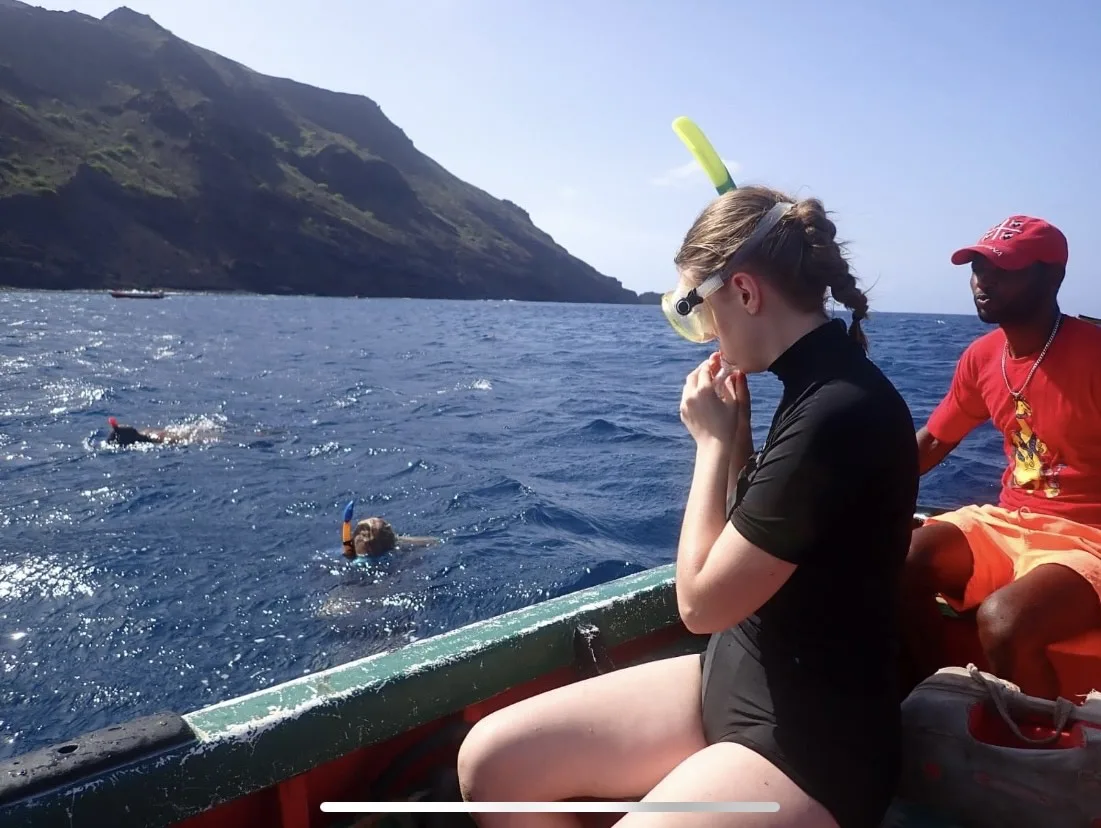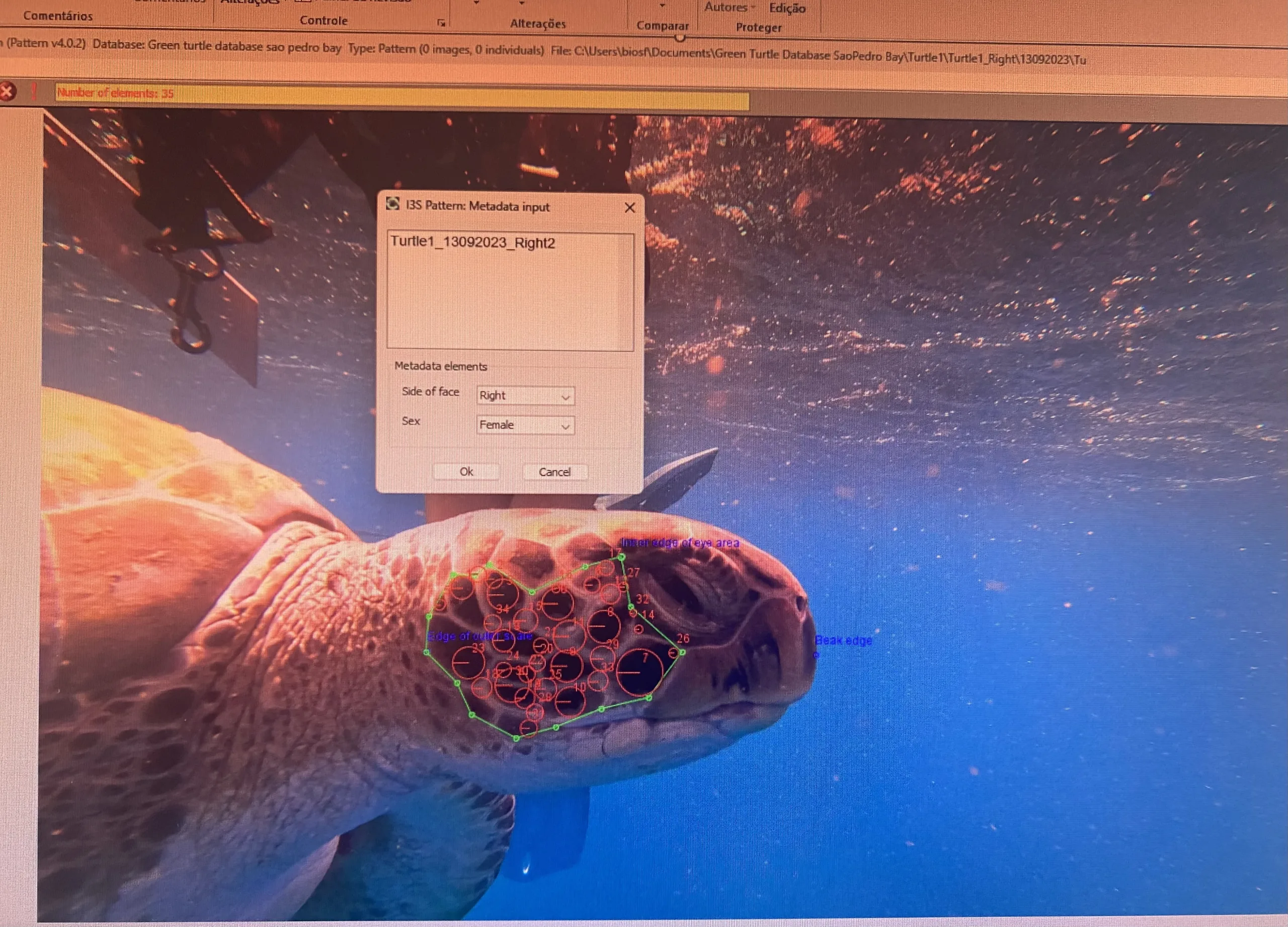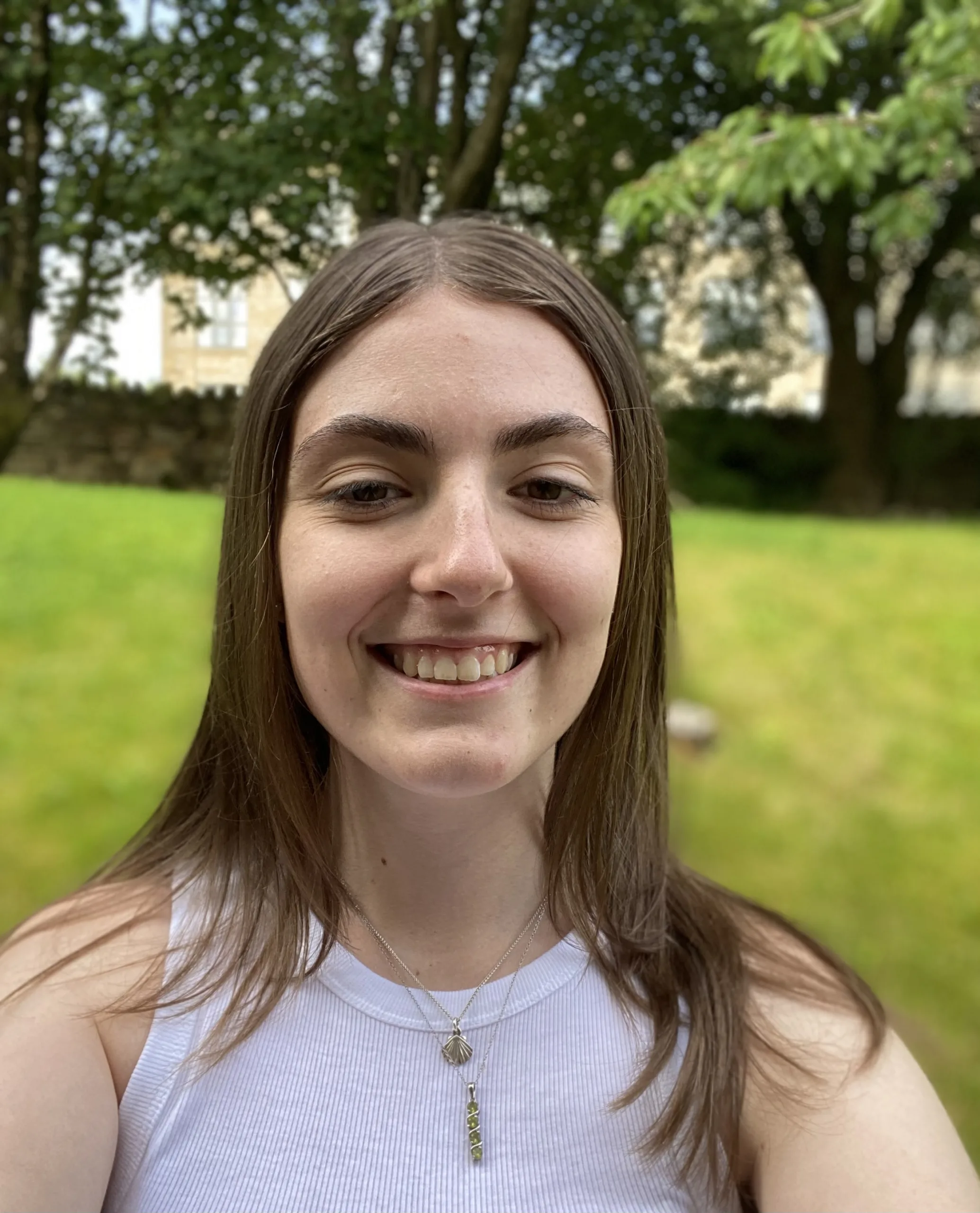The Darwin200 Global Voyage (3rd to 11th September) follows Charles Darwin’s footsteps, setting sail from the historic town of Plymouth, England, where Darwin stepped aboard HMS Beagle on 27th December, 1831. Former student Alison Ashworth from Brierfield, will board the Oosterschelde on the Tenerife to Cape Verde leg, where she will be working with Biosfera’s turtle experts into the population of green turtles on San Pedro beach and the effects of increasing tourism on the health and wellbeing of the animals. She has gained this opportunity thanks to the Don Hanson Charitable Foundation and Jane Goodall’s Roots and Shoots programme.
From watching nature documentaries as a child to studying climate change more comprehensively in her Environmental Science degree at the University of Lancaster, Alison has always been fascinated by the causes of the current climate crisis and how it can be resolved.
Her academic journey has exposed her to various perspectives on global climate issues and potential solutions, fuelling her determination to contribute positively to the cause. Whether through research or campaigning for governments and businesses, Alison is committed to making a difference in the fight against climate change.
One person who greatly inspired Alison is Wayne Dixon, an environmental activist she had the pleasure of meeting at the Annual North West Sustainability Learning Conference. Wayne’s four-year endeavour of walking around the entire UK coastline, picking up litter, and raising awareness showcased the impact one individual can have.
Eager to broaden her horizons and gain hands-on experience, Alison sees the Darwin Leadership Program as a transformative opportunity. The chance to witness environmental changes first-hand and participate in research collection aligns perfectly with her goals.
A strong team player with excellent communication skills, Alison enjoys challenges and is passionate about scientific investigations. She relishes the idea of exploring new environments and meeting like-minded individuals through the program. Alison added;
“During my time at St Christopher’s School and sixth form, I was the school Eco Captain. In this role, I assisted/helped in making the school and local community more eco-friendly. One way I did this was through the ‘teach the teachers’ campaign which aims to put the risks of climate change into the school curriculum. For this, I spoke in front of the teaching staff and was interviewed by the local radio and newspaper.
I also took part in the ‘Solar For Schools’ project, which allowed the school to see how many solar panels could be placed on the high school and sixth form, how much it would cost and whether this would be sustainable. Recently, the school has managed to install these solar panels through the financial support of Solar For Schools.
Even though I left sixth form last year, I was recently invited back for a sustainability learning conference. I helped set up the event, hand out awards and greet people. Through this, and also meeting and listening to the speakers and the performances, it widened my knowledge on ways to tackle some of the environmental challenges we face today.
By partaking in these projects, it puts my learning into practice on ways to spread awareness and tackle environmental issues.”
Eco Lead and Associate Assistant Headteacher at St Christopher’s, Wendy Litherland remarked;
“This amazing opportunity for such a high calibre student, as Alison reflects the continued partnership the school has with Jane Goodall’s Roots and Shoots which aligns with the school’s sustainability ethos. Throughout her seven years at St Christopher’s Alison took part in various projects, which reflects the commitment the school fosters for environmental awareness within the school, community and country. We are really looking forward to welcoming her back into school and sixth form to share her experiences with our current pupils and students later this academic year.”
HISTORY OF THE ‘OOSTERSCHELDE’ The three-masted topsail schooner ‘Oosterschelde’ was built in 1918 as sail-powered freighter. The vessel plied the European waters and was regularly seen off the coast of Morocco and on the Mediterranean Sea. In 1930 heavier and modern diesel engines were placed and the rigging was reduced. From 1939 the vessel sailed under foreign flags and underwent a drastic conversion in 1950 into a modern coaster. In 1988, the ‘Oosterschelde’ was brought back to the Netherlands. The Rotterdam Sailing Ship Foundation took charge of the fundraising necessary for the financing of the restoration of the vessel to its authentic condition.
The ‘Oosterschelde’ is now the only remaining representative of a large fleet op topsail schooners that used to sail under the Dutch flag at the beginning of the previous century. She is registered as a monument by the Dutch ministry of Culture. The ‘Oosterschelde’ is self-maintaining and is deployed in domestic and foreign ports for presentation and promotion activities for businesses and other organisations. The vessel also sails along interesting coasts and these trips can be booked individually. In addition to many European countries, a visit was also paid to Spitsbergen. In 1998 the ‘Oosterschelde’ completed a journey of one and a half years around the world. The ship sailed to the tropics, but also made expeditions to Antarctica, the Falklands and South Georgia. Alison follows in the footsteps of former students Kainaat Hussain (Accrington) and Solphia Zhou (Nelson) who travelled on the practice voyage around the UK in 2020.
Tenerife is located in the Canary Islands, an archipelago that is part of Spain, although located off the west coast of Africa. Tenerife is the largest of the Canary Islands, and noted for its spectacular beaches, dramatic landscapes, lush forests, exotic fauna and flora, deserts, mountains, resorts and lively nightlife. She will sail to Cape Verde, an island nation (officially the Republic of Cabo Verde) that consist of a horseshoe-shaped cluster of ten islands (nine inhabited) and eight islets, located to the west of continental Africa. Formerly a Portuguese colony, Cape Verde is now a popular tourist destination known for its many spectacular beaches and dramatic volcanic landscapes. Portuguese is the country’s official language; however, Cape Verdean Creole is spoken by the majority of the population.
For more information, please visit the following websites:
https://darwin200.com/darwin200-leader/










